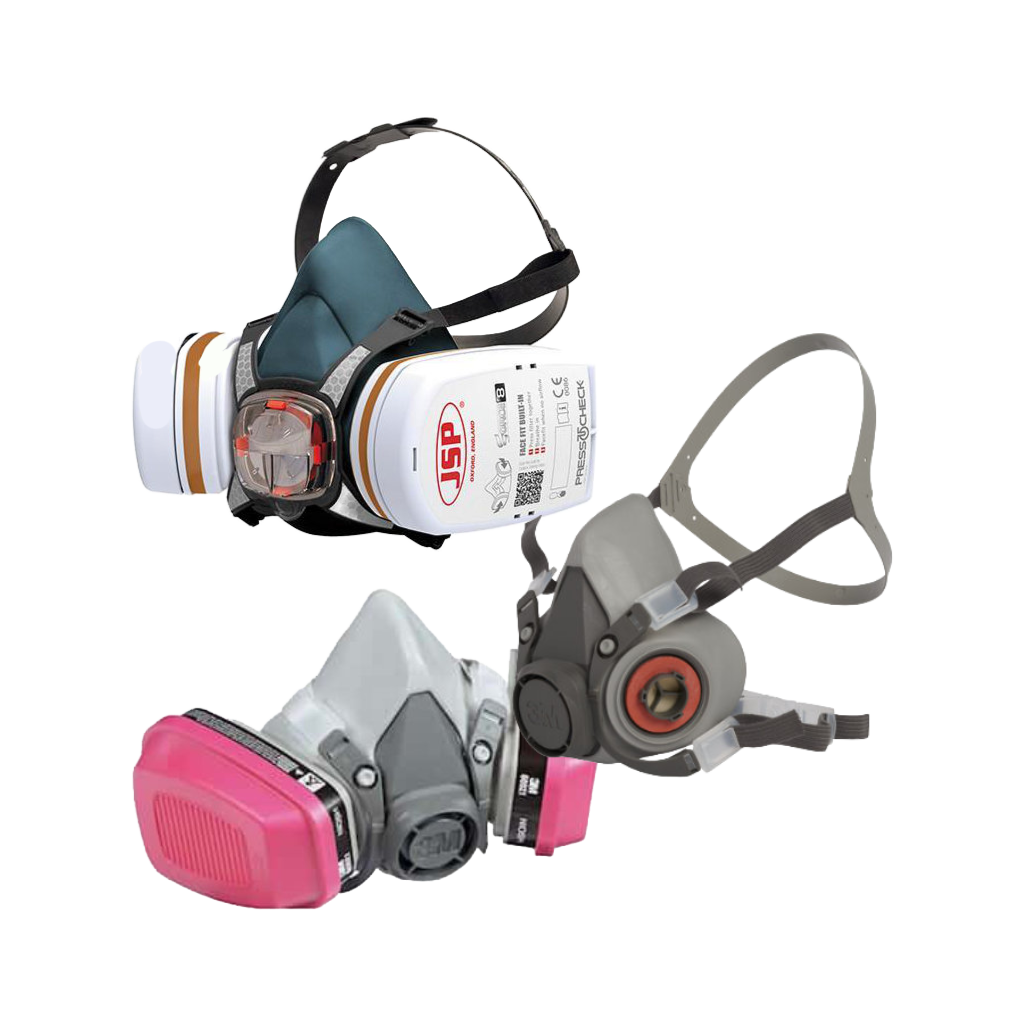Face Fit Testing Near Wiltshire, Dorset, Hampshire, Surrey, Somerset and Isle of Wight.
The Leading Quantitative Mask Fit Tester, our experienced and qualified technicians ensure a precise fit for your employees’ RPE, ensuring maximum protection in hazardous environments.
On Site Face Fit Testing
Qualitative face-fit assessments for your team with a fully Fit2Fit certified expert.
It’s essential to ensure that the respiratory protective equipment (RPE) you provide to your employees fits them properly, is utilised correctly, and is up-to-date with maintenance standards, as per your health and safety responsibilities. The Health & Safety Executives (HSE) have specified the importance of face-fit testing in their guidance document, INDG 479.
If your staff is exposed to dusty conditions, it’s imperative to have face-fit testing. As per the COSHH (Control of Substances Hazardous to Health) Regulations, a face-fit test is vital when choosing RPE to guarantee a secure and adequate seal. It’s worth noting that over half of the masks tested on untrained individuals did not pass the face fit assessment.
Adhering to the protocols in INDG 479 & HSG 53 regarding RPE ensures that you’re in compliance with the mandated regulations.
Get a Quote for Face Fit Testing
Understanding Face Fit Testing
Face fit testing is a rigorous method used to assess the seal between the wearer’s face and the protective mask’s sealing surface. This process ensures that potential contaminants cannot infiltrate through gaps, guaranteeing optimal protection. In various industries, not only is this testing vital for safeguarding against airborne threats like dust and microbes, but it’s also a regulatory requirement. Complying isn’t solely about meeting standards but ensuring every individual operates in a secure and safe environment.
The Significance of a Perfect Fit
A well-fitted mask does more than just shield you. It provides comfort, enabling wearers to concentrate on their tasks without the need for frequent adjustments or facing discomfort. Beyond personal protection, achieving a proper mask fit boosts productivity, underscores a commitment to safety, and fosters an environment of well-being.

What Our Customers Say About Us
Why Choose Us
Your Safety, Our Expertise
When it comes to ensuring that your protective masks offer optimal security, you want a trusted partner by your side.
- Years of Experience: With over a decade in the field, we’ve honed our skills, ensuring every test we conduct meets the highest standards of accuracy and reliability.
- Certified Excellence: Our team is not just skilled, but also certified. We’re affiliated with leading industry bodies, ensuring that our services adhere to the latest best practices and regulations.
- Trusted by Many: Our clients are our best ambassadors. Their repeated trust in our services and the testimonials they’ve shared underscore the quality and dependability we bring to the table.

FAQ
Who needs face fit testing?
Everyone using close-fitting respiratory protection devices, such as respirators or compressed air breathing apparatus, should undergo a face fit test. Why invest in top-notch respiratory protective gear only to risk its effectiveness by not ensuring a proper fit for the wearer?
Why is face fit testing essential?
Face fit testing guarantees that the protective mask chosen is the right fit for your facial structure, enhancing its efficiency against dangerous airborne elements. Recent studies reveal that nearly half of the Respiratory Protective Equipment (RPE) used doesn’t provide the expected protection level, primarily because it doesn’t fit properly.
What are the legal requirements for face fit testing?
The guidelines provided by COSHH, CLaW, and CAW endorse face fit testing as a means to guarantee an effective face seal. If face fit testing isn’t conducted, the HSE has the authority to take legal action. However, legal repercussions can be avoided if one can demonstrate that their procedures either match or surpass the face fit testing standards outlined in the HSE guidance, OC 282/28.
How often should RPE face fit testing be conducted?
Regular face fit testing is crucial to ensure continuous protection, especially if there’s a change in the wearer’s facial features (like significant weight loss or gain, dental work, or facial surgery). It’s recommended to schedule re-tests periodically and whenever there’s a change in the type or model of the RPE used.
Are there specific masks that require face fit testing?
While all tight-fitting respiratory protection should undergo face fit testing, it’s especially vital for masks used in high-risk environments, such as those exposed to toxic chemicals, biohazards, or fine particulate matter. Regardless of the mask’s brand or type, if it’s meant to provide a tight seal on the face, it should be fit tested.
Can I be fit tested if I have facial hair?
Facial hair, such as beards, moustaches, or stubble, can compromise the seal of a tight-fitting mask. It’s required that wearers be clean-shaven in the area of the mask seal to ensure an effective fit. If shaving isn’t an option, consider using hooded or helmet-style respirators which don’t require a tight seal against the face.
Still need help? Call us today on 0755 730 2054 or email